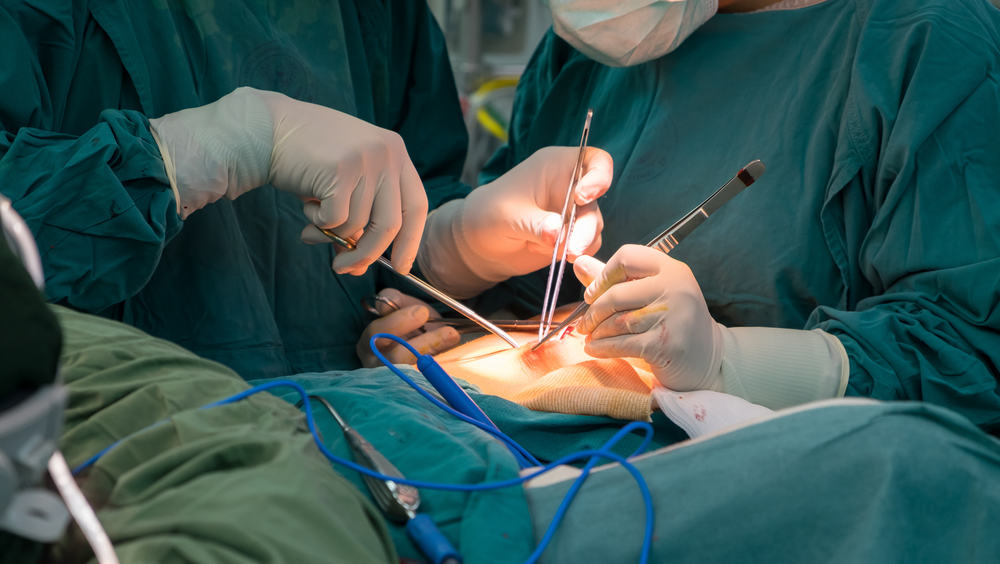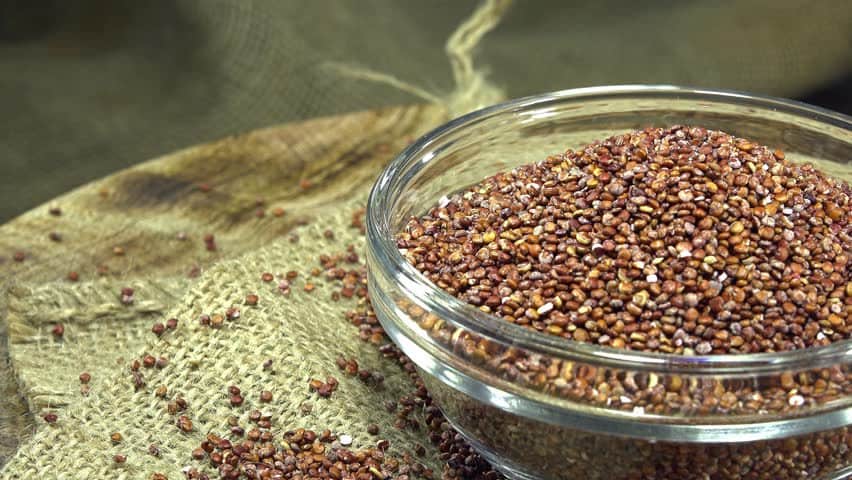Contents:
- Medical Video: Complications After Hernia Surgery
- What complications can occur after surgery?
- 1. Pain due to an incision in the skin
- 2. Side effects of anesthesia that can cause nausea and vomiting
- 3. Infection due to surgical wounds that can cause pain
- 4. Blood vessel clots occur
Medical Video: Complications After Hernia Surgery
Surgery is sometimes one of the medical actions that are considered frightening by some people, if you feel nervous before the operating procedure, this is normal. In order to deal with stress or nervousness before surgery, be active in asking questions about the surgery that you will go to the surgeon before the time comes to enter the operating room including complications after surgery. Before asking a doctor directly, there are various problems with complications after surgery that you can find out in this article.
What complications can occur after surgery?
1. Pain due to an incision in the skin
Postoperative pain is normal and common. Several steps can be taken to minimize or reduce it, but postoperative pain can worsen when accompanied by other symptoms, which can be a postoperative complication that requires medical treatment.
Not only adults, children who undergo surgery also feel the same pain, and they will usually express their pain with words like pain. The cause of pain usually comes from slicing on the skin which will stimulate the nerves to deliver pain signals to the brain. As the body begins to heal, the pain should decrease and eventually disappear altogether. The duration of postoperative pain can depend on several factors such as a person's health condition, the presence of other diseases, and also smoking habits.
To deal with postoperative pain, doctors usually prescribe medication to relieve it. Some types of drugs that can relieve pain include acetaminophen, nonsteroidal anti-inflammatory medications (NSAIDs), such as ibuprofen and naproxen.
Many people who do not want to take anti-pain medication prescribed by a doctor for reasons of fear of addiction. Actually addicting to anti-pain drugs is very rare. Even sometimes, do not use dangerous anti-drugs.
Severe pain sometimes makes it difficult for someone to take deep breaths and increase their risk of pneumonia. Pain can also make it difficult for someone to do daily work, such as walking, eating and sleeping. Even though adequate nutrition and rest are needed to speed up the process of healing wounds caused by surgery.
2. Side effects of anesthesia that can cause nausea and vomiting
What happens if experts in the health sector do not find drugs? Certainly, we will hear the painful screams of the patients behind the door of the medical room. In the field of health, anesthesia is called anesthesia, which means 'without sensation'.
The purpose of anesthesia is to numb certain areas of the body or even make you unconscious (fall asleep). By applying anesthesia, doctors can freely carry out medical actions that involve sharp equipment and body parts without hurting you.
Anesthetic may cause side effects that make you uncomfortable such as nausea, vomiting, itching, dizziness, bruising, difficulty urinating, feeling cold and shivering. Usually these effects do not last long. In addition to side effects, complications after surgery because of this anesthetic might be possible. Here are some bad things, though they are rare, which might happen to you:
- Allergic reactions to drugs.
- Permanent nerve damage.
- Pneumonia.
- Blindness.
- Died.
The risk of side effects and complications depends on the type of anesthesia used, age, health condition, and how your body responds to the drug. Risk will be higher if you have an unhealthy lifestyle (smoking, consuming alcohol and drugs), and being overweight.
To prevent that from happening, it's a good idea to follow all the procedures that the doctor recommends before undergoing anesthesia such as intake patterns. Your doctor may ask you to stop eating above 12pm. Consuming herbal medicines or vitamins should be stopped at least seven days before medical action is taken.
3. Infection due to surgical wounds that can cause pain
Infection is the invasion of the body by pathogens or microorganisms that can cause pain. Postoperative infection is an infection from a wound obtained after surgery. Can occur between 30 days after surgery, usually occurring between 5 and 10 days after surgery. This surgical wound infection can occur in closed wounds or open wounds. Infection can occur in superficial tissue (which is close to the skin) or on deeper tissue. In serious cases, postoperative infections can affect organs.
Infection in surgical wounds requires special attention by medical personnel directly because infection can be very dangerous if it spreads and affects vital organs. The following symptoms of surgical wound infection:
- There is pus, blood or fluid coming out of the surgical wound
- There is pain, swelling, redness, warmth and fever
- Surgical wounds that don't heal or dry out
If your surgical wound has the above symptoms, you should immediately see a doctor who treats you to get the right treatment according to your conditions and needs.
Infected surgical wounds require evaluation and procedures for opening surgical sutures can be done to clean the injured area. The most important treatment for surgical wound infections is to make sure the infection has been cleared, then given antibiotic treatment by injection, drink or topical.
4. Blood vessel clots occur
Usually women more often experience clots in blood vessels as a complication after surgery, especially in the legs, after giving birth caesarean. A study concluded that there was a cesarean section with a risk of increased venous thromboembolism (VTE) or blood clots in circulation in blood vessels.
The study, published in the CHEST journal, found that C-section carries a four-fold greater risk of VTE than normal labor. C-section is a factor in an increase in venous troboemboli (VTE) after delivery and this blood clot occurs in 1,000 c-section operations. Pregnant women are more susceptible to VTE due to various factors, including venous stasis and trauma associated with labor.
The period after giving birth, women who give birth by caesarean section are at risk of suffering from blood clots (coagulation) greater than the normal labor process. Caesarean delivery requires a longer recovery time than normal labor.












